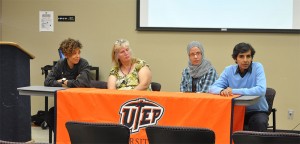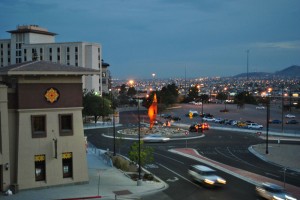Disabled persons confront negative cultural attitudes
|
EL PASO – Oscar Lozoya, a blind graduate student at the University of Texas at El Paso, says he realized early in his life that the attitude toward disabled people in Mexico where he grew up is generally very negative, forcing many to hide their disabilities. “The feeling most people in our [Mexican] society have towards disabled people is that of pity, not of deep human compassion, but one of negative feelings,” Lozoya said. “In Mexico, it is hard to get a true count of how many disabled people there are, because disabled people and their families will hide it, so they won’t have to live with that stigma.”
Four international students at the University of Texas at El Paso shared their experiences of living with a disability in their country of origin at a meeting entitled “Global perspectives on access for people with diverse abilities.” The panel discussion examined how persons with disabilities are treated in different cultures, by governments and because of their social standing. Afraid of being stigmatized, Lozoya, who is engaged in interdisciplinary studies at UTEP, did not seek out government or social help for his blindness. While special education is available in the Mexican education system, Lozoya said he believes it harms the students more than it helps them.




